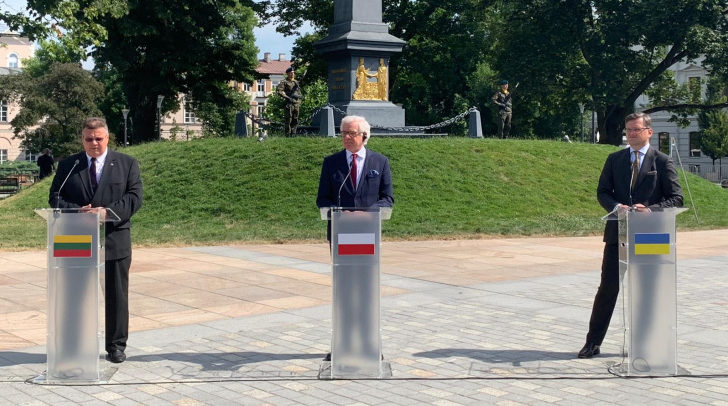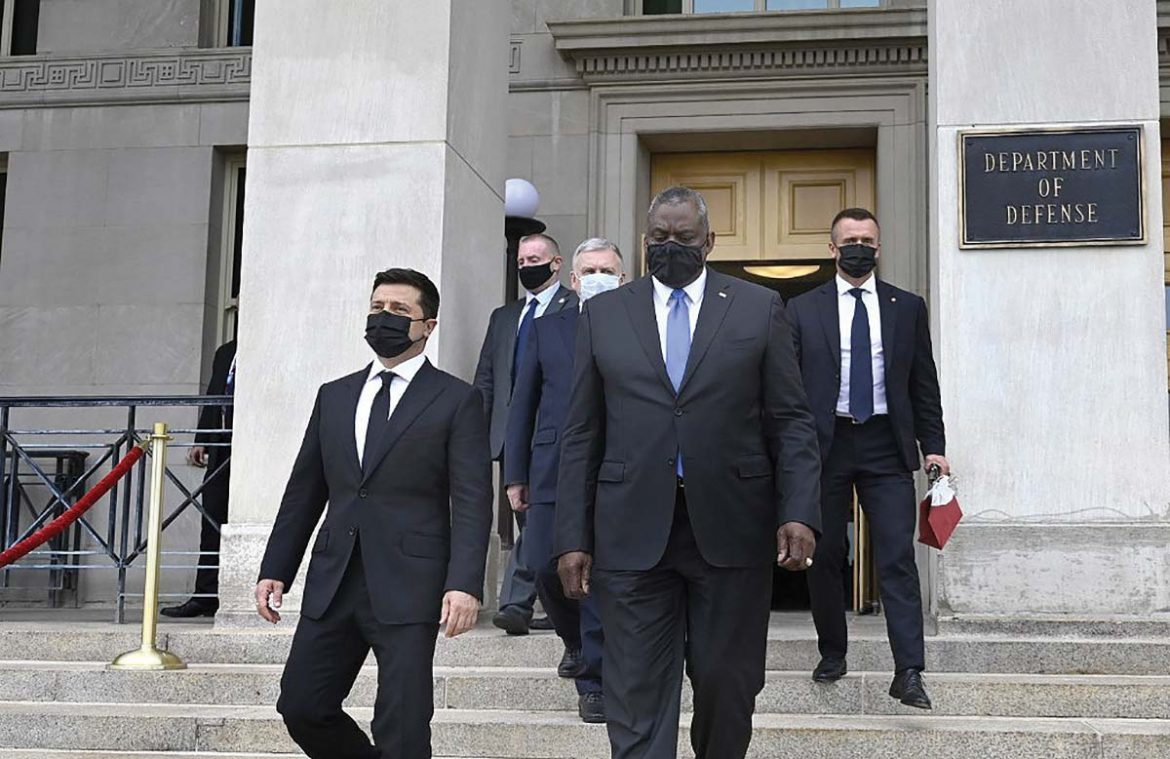The foreign ministers of Poland, Lithuania and Ukraine have created a new regional security cooperation grouping, the Lublin Triangle, both to counter Russian aggression and promote the continued expansion of Europe.
This grouping of states reflects the search of security in the so-called “lands in between” and is smaller than some projects but larger than others. As such, if it becomes a regular consultative and cooperation measure, it will give the countries of the region yet another way to stand up to Russia and promote their common interests in the West.
Read more: Ukraine, Poland, and Lithuania create “Lublin Triangle,” stirring memories of 17th century republic
Among the most important parts of the declaration is a commitment never to recognize Russian occupation of Ukraine’s Crimea and Sevastopol, to promote military cooperation among the three and with NATO, and to use this format to coordinate responses to challenges in the security sphere and more broadly.

Below is the text signed by the three on July 28, 2020:
and Ukraine recognize the multi-centennial historical and cultural links between their nations.
They also recognize the benefits of creating even stronger political, economic, infrastructure, security, defense and cultural links between their countries in the contemporary world.
They draw attention to the activities of Poland, Lithuania and Ukraine in the process of shaping the modern political, cultural and social realities of Central Europe.
At the same time, they underline the strategic importance of intensified cooperation between the European Union, NATO and Eastern Partnership countries and pay due attention to the functioning of the Three Seas Initiative.
They note with due attention common threats in security area as well as in others, i.e. pandemic threats.
They underline the important role of dialog between the three countries in the parliamentary dimension, especially within the Parliamentary Assembly Poland-Lithuania-Ukraine.
They recognize the benefits of their trilateral cooperation in the security sphere, in particular functioning of the Lithuanian-Polish-Ukrainian Brigade (LitPolUkrBrig).
Taking into account the ongoing Russian aggression in Ukraine, they commit to coordinating their activities in order to uphold the international law, both through trilateral cooperation and within international organizations (NATO, European Union, United Nations, Council of Europe, OSCE).
They declare invariably their strong condemnation of the attempted annexation of the Autonomous Republic of Crimea
and the city of Sevastopol by the Russian Federation. They do not recognize it and will never do it. They also call upon Russian Federation to withdraw its troops from the parts of Donetsk and Luhansk regions of Ukraine.
They reaffirm their unwavering support to Ukraine’s independence, sovereignty and territorial integrity within internationally recognized borders and call upon Russian Federation to stop its aggression against Ukraine, as well as its temporary occupation of Ukraine’s territories of Crimea and parts of Donetsk and Luhansk regions of Ukraine.
They reiterate their firm support for the European and Euro-Atlantic aspirations of Ukraine and welcome its European choice.
They note with satisfaction granting of NATO Enhanced Opportunities Partner status to Ukraine. They support Ukraine’s aspirations to NATO membership. Providing Ukraine with the NATO Membership Action Plan should be the next step to this direction.
They recommit to deepening and broadening of Polish-Lithuanian-Ukrainian military-to-military cooperation, both through bilateral and trilateral activities and by making full use of possibilities created by NATO.
They reaffirm the unwavering commitment to the development of the Eastern Partnership by broadening and deepening cooperation and proposing ambitious and strategic long-term goals.
They commit to providing mutual support in the fight against the coronavirus pandemic.
They envisage active actions aiming at promoting trade and investments, securing better access to regional infrastructure and improving its quality by stepping up with ambitious projects promoting cohesion in the region.
They support the cooperation of Ukraine with the Three Seas Initiative, as well as cooperation within other regional formats.
They support the effective implementation of political-economic reforms in Ukraine, taking into account Polish and Lithuanian experiences and best practices worked out in cooperation with other European countries.
They commit to strengthening people-to-people contacts and civil society cooperation, including between scientists and experts.
In order to ensure achieving the above-mentioned goals the Ministers decide to create a trilateral platform for political economic and social cooperation between the Republic of Poland, the Republic of Lithuania and Ukraine - Lublin Triangle.
The Ministers decide to organize their regular meetings, also in the margins of multilateral sessions and with the participation of chosen partners.
They also decide to organize consultations of high-level MFA officials and establish liaison-officers within the Ministries of Foreign Affairs.
Read also:
- Ukraine, Poland, and Lithuania create “Lublin Triangle,” stirring memories of 17th century republic
- Ukraine “forming new military ‘troika’ with Lithuania and Poland”
- Intermarium countries becoming Ukraine’s main advocates, Portnikov says
- Intermarium countries can no longer count on West to defend them against Russia, Honcharenko says
- Eastern Europe arming itself because ‘no one wants to be the next Ukraine’
- Ukraine, the Gates of Europe of the last millennia, and their meaning for Russia – Serhii Plokhy explains





